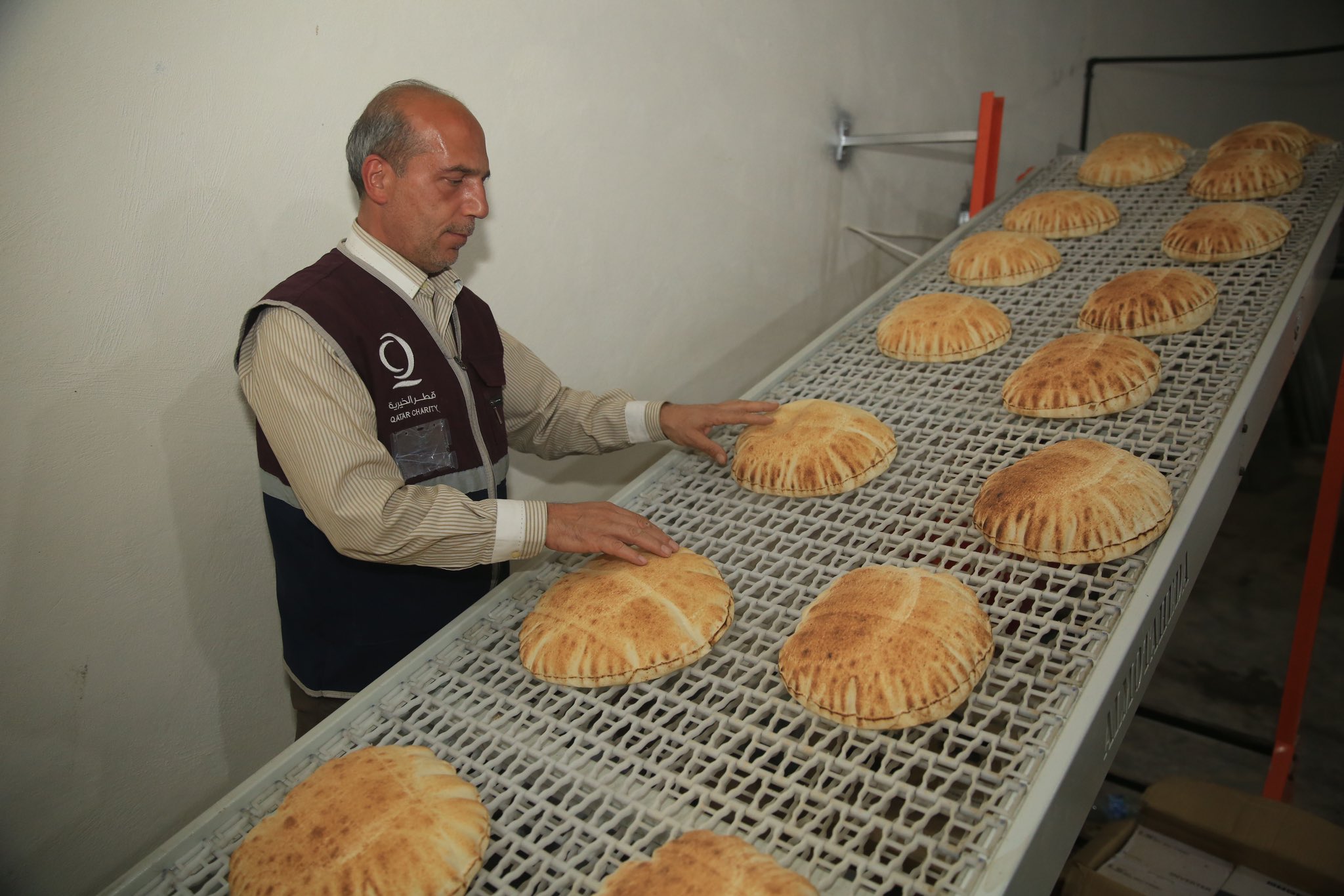Qatar Charity implements an automated bread production line in northern Syria, aiming to bolster food security for over 50,000 people and promote self-sufficiency in the region.
Qatar Charity is enhancing food security in northern Syria through the establishment of an automated bread production line in the Afrin district, the Qatari entity announced on Monday.
In a statement, Qatar Charity said the latest initiative falls under its broader ‘Support the Wheat Value Chain’ project, which it has been implementing for five consecutive years.
The latest bread production line can produce 15,000 loaves of bread per day to meet the needs of more than 50,000 people in the area, including those displaced in camps. Qatar Charity’s end goal is to help the crisis-hit population in northern Syria to achieve self-sufficiency.
“We thank Qatar Charity for its vital role in improving living conditions in the camps through this project, especially since the automated bread production line plays a pivotal role in providing subsidized and free bread, reducing financial burdens on the population and enhancing food security in the region,” Aref Mohammed Ali, Director of Services and member of the Local Council in Maabatli, said.
Since the project’s establishment five years ago, it has supported 120 farmers by providing them with seeds, fertilizers, pesticides, and the cost of fuel for irrigation.
Qatar Charity also bought 1,200 tonnes of wheat from the local farmers in the area and processed 925 tonnes of flour, which it then distributed to bakeries in the region. In total, the project benefited more than 25,000 internally displaced people (IDPs), according to Qatar Charity.
The sixth year of the project will focus on “building resilience in local communities” and “enhancing the role of women.”
“The plan for the sixth year focuses on expanding support and building resilience in local communities through new activities targeting climate change, and enhancing the role of women in rural areas to work on wheat products, as well as providing agricultural machinery to farmers and local institutions operating in the region to address climate change,” the Doha-based entity said.
Syrians in northern Syria have been living under a dire humanitarian situation as a result of the Bashar Al Assad regime’s war on the population following the 2011 pro-democracy protests.
The Assad regime had also blocked aid to northern Syria last year following the devastating February 6, 2023 earthquake that struck the area as well as Turkiye, claiming more than 50,000 lives.
Geneva-based NGO, IMPACT Initiatives, said northern Syria’s communities “are still grappling with the profound challenges” a year on.
“To this day, the situation in Northwest Syria remains fragile. Besides the devastating February 2023 earthquakes, the major conflict escalations in October of last year resulted in additional damage, human casualties and displacement,” IMPACT said on February 6, the one-year mark of the earthquake.
The NGO noted that approximately 300,000 people have been displaced in northwest Syria in 2023 alone.
Late last year, the Syrian regime also carried out intensified attacks on Idlib, the last area controlled by the opposition. Since 2011, the Assad regime has killed 231,108 civilians, according to the Syrian Network for Human Rights.
Meanwhile, last year saw a regional wave of normalisation with Syria’s Assad regime following more than a decade of isolation.
The Arab League allowed Syria back into the bloc after initially suspending its membership in 2011 as a response to his violent crackdown on peaceful protests, which had plunged the country into war and caused a major refugee crisis.
However, Qatar maintained its staunch refusal to normalise with the Assad regime over the ongoing crimes against civilians in Syria.
During the Arab League summit in May 2023, Qatar’s Amir Sheikh Tamim bin Hamad Al-Thani had left the meeting ahead of Assad’s speech – his first such appearance since Syria was reinstated into the bloc.
The move was widely seen as a clear rejection of Assad’s presence in the regional bloc.







